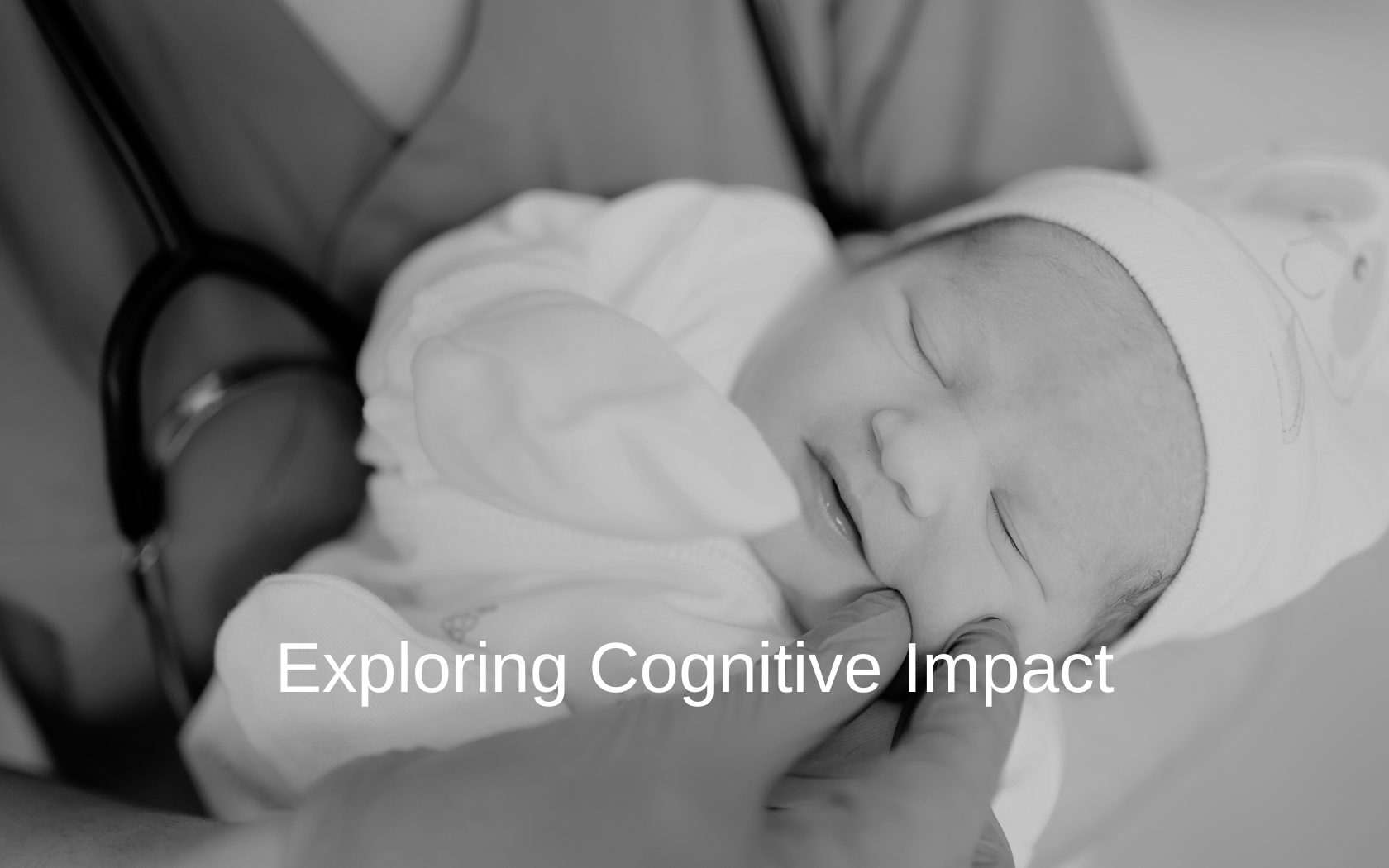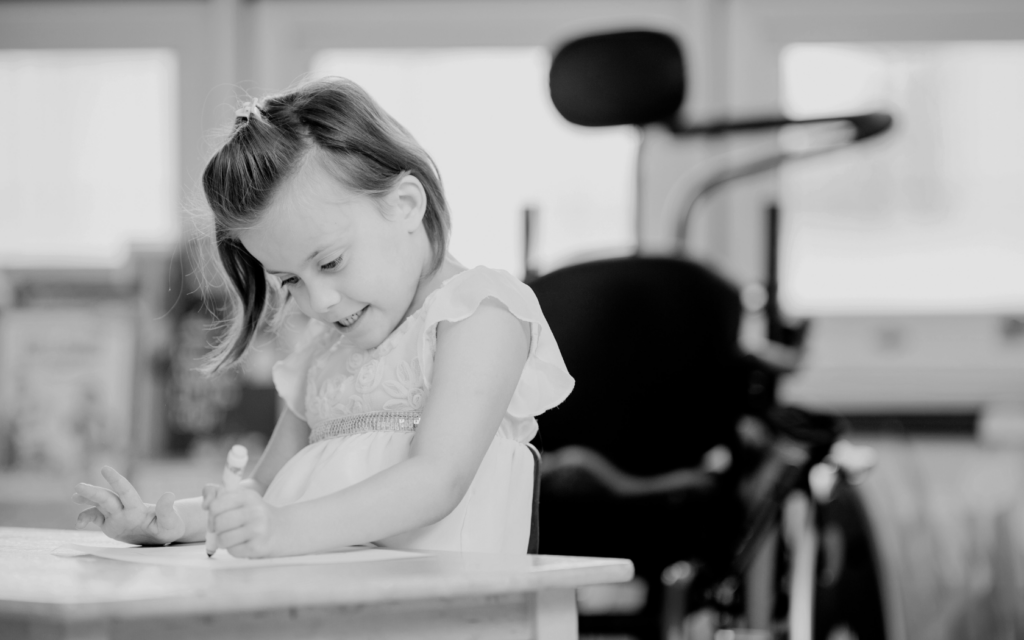Parents of babies with cerebral palsy (CP) often wonder how their children will manage daily tasks like walking, holding a fork, or brushing their teeth. Since CP is a movement disorder, those challenges are par for the course.
But parents also worry about broader concerns: How will their children perform in school? Does cerebral palsy affect cognition? Will they struggle with learning to read and write? Will they be able to solve equations or grasp complex concepts?
We can’t answer specific questions about your child, but we can tell you that cerebral palsy doesn’t affect cognition directly. So there’s no such thing as a “cerebral palsy intellectual disability.”
But many children with cerebral palsy do have cognitive issues. Below, we’ll explain why this is, and tell you what you need to know about cerebral palsy mental capacity.

Facts About Cerebral Palsy Mental Capacity
CP mainly impacts muscle control and movement. But some people with CP have intellectual disabilities due to other conditions that occur alongside it. Each person’s situation is different. Some people with CP have normal or above-average intelligence. Others may face learning challenges.
Here are some important facts to know about cerebral palsy and mental capacity:
- Having cerebral palsy doesn’t necessarily mean someone has an intellectual disability.
- CP doesn’t affect mental capacity by itself.
- Approximately 30-50% of children with CP have an intellectual disability because of another co-existing condition, according to the National Institute of Neurological Disorders and Stroke.
- It’s more common for people with severe CP to have intellectual impairments. However, some people with severe CP have no intellectual disabilities whatsoever.
- People with CP can be gifted intellectually, or their intellect can be average. They can also have severely impaired mental capacity. It all depends on what associated conditions they have.
- Some people with CP have trouble communicating, but not because of a cerebral palsy intellectual disability. Rather, it’s because their CP hinders their vision or hearing.
- Some studies show that adults with CP are at higher risk of developing anxiety and depression. These mental health disorders can affect cognition.
- Many individuals with CP lead full, independent lives and have successful careers and relationships.
Cerebral Palsy Mental Capacity Explained
Why do many children with cerebral palsy (CP) also have cognitive impairments? The main answer is that CP is caused by brain damage. This brain damage can affect different parts of the brain.
Sometimes, the areas controlling movement and areas responsible for thinking and learning are both affected. Other times, CP happens along with conditions like epilepsy or intellectual disabilities, which can also impact cognition.
Coexisting conditions that can affect cognition and intellectual capacity include, but aren’t limited to:
- Poor vision
- Poor hearing
- Attention-deficit/hyperactivity disorder (ADHD)
- Autism
- Epilepsy
- Learning disabilities
- Speech and language disorders
- Behavioral disorders
- Sensory processing disorder

How Do I Know If My Child Has an Intellectual Disability?
You can’t ask a 5-month-old to solve a math problem. So how will you know if your child might struggle with one later? Could they have a cognitive impairment along with cerebral palsy?
You can look for early signs of cognitive impairment, such as:
- Milestone Delays: Notice if your baby is late in reaching milestones like smiling, babbling, or rolling over.
- Eye Contact: Watch if your baby makes poor eye contact or doesn’t follow objects with their eyes.
- Response to Sounds: See if your baby doesn’t respond to loud sounds or your voice.
- Interest in Play: Check if your baby shows little interest in playing with toys or interacting with people.
- Difficulty with Simple Tasks: Observe if your baby struggles with simple tasks like holding objects or bringing hands to their mouth.
It’s very important to get your baby help as early as possible if there are any signs of a cerebral palsy-related intellectual disability. So if you notice these signs, talk to your child’s doctor. Early intervention can help support your child’s development.
If your child is a toddler or older, you might look for delays in these areas:
- Language progression
- Potty training
- Ability to get dressed
- Memory/Object permanence
- Getting along with others
Remember, issues with behavior or meeting milestones doesn’t necessarily mean that your child with cerebral palsy has an intellectual disability. Your child’s doctor may recommend further assessments and evaluation to help identify any impairments, if any exist.
Does Cerebral Palsy Affect Cognition as A Person Ages?
First, we should clarify that cerebral palsy doesn’t get worse as a person ages. Plus, cerebral palsy doesn’t directly affect cognition. So, CP doesn’t affect cognition as a person gets older.
Also, a recent study showed that people with cerebral palsy aren’t more likely to develop dementia than anyone else.
That being said, many issues related to cerebral palsy do develop over time. These can include difficulty with movement, pain, or fatigue, which might impact daily activities. Aging with cerebral palsy may also bring new challenges, like increased joint stiffness, muscle weakness, and difficulty maintaining balance.
All those challenges can affect a person’s mental health. They can lead to depression and anxiety. In turn, depression can affect cognition because it hinders a person’s ability to focus and remember things.
What Treatment Can Help Cerebral Palsy Mental Capacity?
Therapy, medicine, and other interventions can boost mental capacity for someone who has cerebral palsy and intellectual impairments. The exact treatment plan depends on what cognitive issues and needs a person has.
Treatment options include:
- Therapy: Speech, occupational, and physical therapy can boost communication and daily skills.
- Medications: Some medicines can help manage symptoms that affect focus and behavior.
- Behavioral Therapy: This type of therapy helps with social skills and managing emotions.
- Assistive Technology: Tools like communication devices aid in learning and expressing thoughts.
- Special Education: You and your child’s doctor can work with a school to make a learning plan that meets their needs.
When it comes to treatment for intellectual or behavioral deficiencies, earlier is better! Also, treatment shouldn’t stop just because a child grows up and doesn’t go to school anymore. A person with cerebral palsy and an intellectual disability should get quality support throughout life. It can help them hold a job and live a more fulfilling, independent life.

Legal Help for Cerebral Palsy and Intellectual Disability
Did you know that birth injuries can cause cerebral palsy? They can also cause intellectual impairments. Emergencies like a ruptured uterus or a nuchal cord can cause a baby to go without oxygen for a period of time. This can lead to brain injuries that lead to CP and intellectual impairments.
When a doctor/birth team fails to prevent or manage a birth injury, they may be liable for the permanent brain injury that results. If you suspect that’s what happened to your baby, you may want to pursue a malpractice lawsuit. This legal action can help you gain funds to help pay for your child’s care.
Reach out to our legal team to find out if you have a case. Our extensive experience with birth injury cases makes us uniquely qualified to support you. We’re dedicated to fighting for the justice and compensation your family deserves. Contact us today for a free consultation and let us help you through this difficult time.




